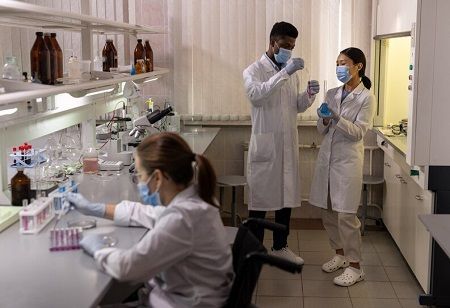India Pharma Outlook Team | Monday, 17 March 2025

The Indian Council of Medical Research (ICMR) plans to set up a Centre for Advanced Research in Aging to provide a good beginning to address aging and aging-related diseases in India.
With the rapid increase in demand for elderly care in tier II cities due to an ever-increasing 100 million plus senior citizens, the Centre will offer opportunities for the growth and innovations of senior healthcare through the Longevity India Initiative at the Indian Institute of Science (IISc).
This is a huge country where it will give way for the biomarkers that are specific to India, organ-specific aging models, and gut-brain axis that connects aging with biological, data-science, and clinical research in promoting healthy aging to surface at the centre. The experts of the Longevity India Conference held a meeting for aging research, lifestyle medicine, and holistic health on December 18, 2025.
The theme was biological foundations and mechanisms of aging. The Director of IISc, Prof. Govindan Rangarajan, said that this would be a good platform for further studies on senior care. Mechanisms such as circadian rhythms, immune aging, and cellular longevity will be investigated in aging.
Prashanth Prakash, Founding Patron of Longevity India, and Founding Partner, Accel said, "Innovations in healthcare, technology, and senior living solutions are crucial to meet the needs of this demographic. Platforms like Longevity India play a vital role in fostering research and with the involvement of innovative start-ups and businesses, we can surely develop some ground breaking solutions together."
Brian Kennedy, Director, Centre for Healthy Longevity, Singapore added, "There is a need to address the needs of the aging population. This Longevity initiative is an excellent opportunity for India to prioritize the health span of its population."
The Centre will look into influences such as nutrition, exercise, and sleep on human aging as well as plant-based nutrition in heart health and spine-friendly exercises. Hence, aging and longevity research in India should be multidisciplinary in nature.
Navakanta Bhat, Dean, Division of Interdisciplinary Sciences, IISc said, "With the average age in India increasing and solutions for infectious diseases already in place, lifestyle diseases will become a major challenge for the future of our healthcare system. Understanding aging, both at the molecular and genetic levels, as well as the environmental factors that influence it is essential. We can develop innovative solutions for healthy aging and pave the way for future advancements for the same."